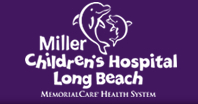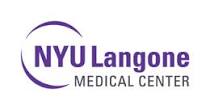Chemoimmunotherapy With Epratuzumab in Relapsed Acute Lymphoblastic Leukemia (ALL)
| Status: | Completed |
|---|---|
| Conditions: | Blood Cancer |
| Therapuetic Areas: | Oncology |
| Healthy: | No |
| Age Range: | 2 - 31 |
| Updated: | 12/14/2017 |
| Start Date: | February 2005 |
| End Date: | April 2011 |
A Feasibility Pilot and Phase II Study Of Chemoimmunotherapy With Epratuzumab (IND #12034) for Children With Relapsed CD22-Positive Acute Lymphoblastic Leukemia (ALL)
This Phase II trial is studying how well giving epratuzumab together with an established
chemotherapy platform works in treating young patients with relapsed acute lymphoblastic
leukemia. Monoclonal antibodies, such as epratuzumab, can block cancer growth in different
ways. Some block the ability of cancer cells to grow and spread. Others find cancer cells and
help kill them or carry cancer-killing substances to them. Chemotherapy drugs work in
different ways to stop the growth of cancer cells, either by killing them or by stopping them
from dividing. Giving monoclonal antibody therapy in combination chemotherapy may kill cancer
cells more effectively.
chemotherapy platform works in treating young patients with relapsed acute lymphoblastic
leukemia. Monoclonal antibodies, such as epratuzumab, can block cancer growth in different
ways. Some block the ability of cancer cells to grow and spread. Others find cancer cells and
help kill them or carry cancer-killing substances to them. Chemotherapy drugs work in
different ways to stop the growth of cancer cells, either by killing them or by stopping them
from dividing. Giving monoclonal antibody therapy in combination chemotherapy may kill cancer
cells more effectively.
PRIMARY OBJECTIVES:
I. Determine the feasibility of epratuzumab administered alone and in combination with
re-induction combination chemotherapy in pediatric patients with relapsed CD22-positive acute
lymphoblastic leukemia.
II. Determine the toxic effects of this regimen in these patients.
III. Determine the antitumor activity of this regimen in these patients.
IV. To estimate the remission re-induction rate and four-month event-free survival (EFS) for
patients with early first relapse ALL who receive epratuzumab in combination with cytotoxic
thermotherapy.
SECONDARY OBJECTIVES:
I. Determine the pharmacokinetics of epratuzumab in these patients. II. Determine the
biologic activity of epratuzumab using measurements of minimal residual disease in these
patients.
III. Determine the human anti-human antibody (HAHA) response in patients treated with this
regimen.
OUTLINE: This is a multicenter study comprising a feasibility part A (closed to accrual as of
10/30/06) followed by a pilot part B study. A Simon's two stage design was initially used to
evaluate the efficacy of the once weekly dosing schedule for part B patients (called B1
cohort), which planned to accrue a total of 112 patients with 56 to be enrolled at the first
stage. After completion the accrual of stage 1, i.e. after 56 patients were enrolled, the
design of part B was revised to evaluate a modified doing schedule (twice weekly doing,
called B2 cohort) using a stratified two-stage design by London and Chang (2005), where
patients enrolled to B2 were stratified according to relapse (first early marrow relapsed
occurring < 18 months from initial diagnosis vs 18-36 months from initial diagnosis).
PART A (CLOSED TO ACCRUAL 10/30/06):
REDUCTION THERAPY: Patients receive epratuzumab IV over several hours on days -14, -10, -6,
and -2 and cytarabine intrathecally (IT) on day -14*.
NOTE: *Patients who receive IT chemotherapy within 7 days of study entry as prior maintenance
chemotherapy (e.g., before the diagnosis of relapse) did not receive this first dose of IT
cytarabine.
RE-INDUCTION THERAPY (BLOCK 1): Patients received vincristine IV on days 1, 8, 15, and 22;
oral prednisone two or three times daily on days 1-29; pegaspargase intramuscularly (IM) on
days 2, 9, 16, and 23; dexrazoxane IV followed by doxorubicin IV over 15 minutes on day 1;
methotrexate IT on days 15 and 29 for CNS-negative disease; and epratuzumab IV over 1 hour on
days 8, 15, 22, and 29. Patients with CNS-positive disease also received triple IT therapy
(ITT) consisting of methotrexate, cytarabine, hydrocortisone on days -10, -6, 1 and 15.
RE-INDUCTION THERAPY (BLOCK 2): Beginning at least 7 days after the last dose of IT
chemotherapy, patients received etoposide IV over 2 hours and cyclophosphamide IV over 30
minutes on days 1-5. Patients also received high-dose methotrexate IV continuously over 24
hours on day 22. Beginning 42 hours after the start of the methotrexate infusion (day 24),
patients received leucovorin calcium IV every 6 hours for a minimum of 3 doses. Patients with
CNS-negative disease also receive methotrexate IT on days 1 and 22. Patients with
CNS-positive disease will receive triple IT as in re-induction therapy (block 1) on days 1
and 22. Patients received filgrastim (G-CSF) subcutaneously (SC) once daily beginning on day
6 and continuing until blood counts recover.
RE-INDUCTION THERAPY (PART 3): Beginning at least 7 days after the last dose of IT
chemotherapy, patients received cytarabine IV over 3 hours twice daily on days 1, 2, 8, and 9
and native E. Coli asparaginase IM on days 2 and 9. Patients receive G-CSF SC once daily
beginning on day 10 and continuing until blood counts recovered.
PART B:
RE-INDUCTION THERAPY (BLOCK 1): Patients received vincristine, prednisone, pegaspargase,
doxorubicin, cytarabine, methotrexate, and epratuzumab as in phase I re-induction therapy
(block 1). Epratuzumab was given on Days 1, 8, 15 and 22 before amendment 5 (B1 cohort) and
on Days 1, 4, 8, 11, 15, 18, 22 and 25 after amendment 5 (B2 cohort) Patients with
CNS-negative disease received methotrexate IT on days 1 and 22. Patients with CNS-positive
disease received triple IT therapy comprising methotrexate, cytarabine, and hydrocortisone on
days 8, 15, 22, and 29.
RE-INDUCTION THERAPY (BLOCKS 2 AND 3): Patients received re-induction therapy blocks 2 and 3
as in the part A re-induction therapy (blocks 2 and 3) portion of the study.
Patients are followed annually.
I. Determine the feasibility of epratuzumab administered alone and in combination with
re-induction combination chemotherapy in pediatric patients with relapsed CD22-positive acute
lymphoblastic leukemia.
II. Determine the toxic effects of this regimen in these patients.
III. Determine the antitumor activity of this regimen in these patients.
IV. To estimate the remission re-induction rate and four-month event-free survival (EFS) for
patients with early first relapse ALL who receive epratuzumab in combination with cytotoxic
thermotherapy.
SECONDARY OBJECTIVES:
I. Determine the pharmacokinetics of epratuzumab in these patients. II. Determine the
biologic activity of epratuzumab using measurements of minimal residual disease in these
patients.
III. Determine the human anti-human antibody (HAHA) response in patients treated with this
regimen.
OUTLINE: This is a multicenter study comprising a feasibility part A (closed to accrual as of
10/30/06) followed by a pilot part B study. A Simon's two stage design was initially used to
evaluate the efficacy of the once weekly dosing schedule for part B patients (called B1
cohort), which planned to accrue a total of 112 patients with 56 to be enrolled at the first
stage. After completion the accrual of stage 1, i.e. after 56 patients were enrolled, the
design of part B was revised to evaluate a modified doing schedule (twice weekly doing,
called B2 cohort) using a stratified two-stage design by London and Chang (2005), where
patients enrolled to B2 were stratified according to relapse (first early marrow relapsed
occurring < 18 months from initial diagnosis vs 18-36 months from initial diagnosis).
PART A (CLOSED TO ACCRUAL 10/30/06):
REDUCTION THERAPY: Patients receive epratuzumab IV over several hours on days -14, -10, -6,
and -2 and cytarabine intrathecally (IT) on day -14*.
NOTE: *Patients who receive IT chemotherapy within 7 days of study entry as prior maintenance
chemotherapy (e.g., before the diagnosis of relapse) did not receive this first dose of IT
cytarabine.
RE-INDUCTION THERAPY (BLOCK 1): Patients received vincristine IV on days 1, 8, 15, and 22;
oral prednisone two or three times daily on days 1-29; pegaspargase intramuscularly (IM) on
days 2, 9, 16, and 23; dexrazoxane IV followed by doxorubicin IV over 15 minutes on day 1;
methotrexate IT on days 15 and 29 for CNS-negative disease; and epratuzumab IV over 1 hour on
days 8, 15, 22, and 29. Patients with CNS-positive disease also received triple IT therapy
(ITT) consisting of methotrexate, cytarabine, hydrocortisone on days -10, -6, 1 and 15.
RE-INDUCTION THERAPY (BLOCK 2): Beginning at least 7 days after the last dose of IT
chemotherapy, patients received etoposide IV over 2 hours and cyclophosphamide IV over 30
minutes on days 1-5. Patients also received high-dose methotrexate IV continuously over 24
hours on day 22. Beginning 42 hours after the start of the methotrexate infusion (day 24),
patients received leucovorin calcium IV every 6 hours for a minimum of 3 doses. Patients with
CNS-negative disease also receive methotrexate IT on days 1 and 22. Patients with
CNS-positive disease will receive triple IT as in re-induction therapy (block 1) on days 1
and 22. Patients received filgrastim (G-CSF) subcutaneously (SC) once daily beginning on day
6 and continuing until blood counts recover.
RE-INDUCTION THERAPY (PART 3): Beginning at least 7 days after the last dose of IT
chemotherapy, patients received cytarabine IV over 3 hours twice daily on days 1, 2, 8, and 9
and native E. Coli asparaginase IM on days 2 and 9. Patients receive G-CSF SC once daily
beginning on day 10 and continuing until blood counts recovered.
PART B:
RE-INDUCTION THERAPY (BLOCK 1): Patients received vincristine, prednisone, pegaspargase,
doxorubicin, cytarabine, methotrexate, and epratuzumab as in phase I re-induction therapy
(block 1). Epratuzumab was given on Days 1, 8, 15 and 22 before amendment 5 (B1 cohort) and
on Days 1, 4, 8, 11, 15, 18, 22 and 25 after amendment 5 (B2 cohort) Patients with
CNS-negative disease received methotrexate IT on days 1 and 22. Patients with CNS-positive
disease received triple IT therapy comprising methotrexate, cytarabine, and hydrocortisone on
days 8, 15, 22, and 29.
RE-INDUCTION THERAPY (BLOCKS 2 AND 3): Patients received re-induction therapy blocks 2 and 3
as in the part A re-induction therapy (blocks 2 and 3) portion of the study.
Patients are followed annually.
Inclusion Criteria:
- Diagnosis of B lymphoblastic leukemia (B-ALL)
- At least 25% expression of CD22 by immunophenotyping
- In marrow relapse (M3 bone marrow) with or without associated extramedullary
disease as defined by 1 of the following:
- In first or later marrow relapse occurring any time after initial diagnosis
(part A [closed to accrual as of 10/30/06] or B)
- In first, early marrow relapse with or without associated extramedullary
disease occurring < 36 months from the time of initial diagnosis (part B
only)
- No B-cell L3 morphology OR evidence of a regulator gene that codes for a transcription
factor (MYC) translocation by molecular or cytogenetic analysis
- No Down syndrome
- Patients with CNS or other extramedullary site involvement are allowed
- Performance status - Karnofsky 50-100% (for patients > 10 years of age)
- Performance status - Lansky 50-100% (for patients ≤ 10 years of age)
- White Blood Count (WBC) ≤ 50,000/mm^3 (part A only [closed to accrual as of 10/30/06])
- Bilirubin ≤ 1.5 times upper limit of normal unless disease-related (ULN)
- Alanine aminotransferase (ALT) ≤ 5 times ULN
- Albumin ≥ 2 g/dL
- Creatinine clearance OR radioisotope glomerular filtration rate ≥ 70 mL/min
- Creatinine as defined by age as follows:
- ≤ 0.5 mg/dL (for patients < 1 year old)
- ≤ 0.8 mg/dL (for patients 1 to 5 years old)
- ≤ 1.0 mg/dL (for patients 6 to 10 years old)
- ≤ 1.2 mg/dL (for patients 11 to 15 years old)
- ≤ 1.5 mg/dL (for patients > 15 years old)
- Shortening fraction ≥ 27% by echocardiogram
- Ejection fraction ≥ 45% by Multi Gated Acquisition Scan (MUGA)
- No dyspnea at rest
- No exercise intolerance
- Pulse oximetry > 94%
- No active or uncontrolled infection
- Not pregnant or nursing
- Negative pregnancy test
- Fertile patients must use effective contraception
- Recovered from prior immunotherapy
- At least 4 months since prior stem cell transplantation or rescue AND no evidence of
active graft-vs-host disease
- At least 7 days since prior hematopoietic growth factors
- At least 7 days since prior biologic therapy*
- No other concurrent immunotherapy
- No other concurrent biologic therapy
- Recovered from prior chemotherapy
- No waiting period for children who relapse while receiving standard ALL
maintenance therapy
- No prior cumulative anthracycline exposure > 400 mg/m^2*
- No concurrent chemotherapy
- Recovered from prior radiotherapy
- No concurrent radiotherapy
- At least 2 days since prior hydroxyurea
- No other concurrent investigational drugs
- No other concurrent anticancer agents
We found this trial at
43
sites
Columbia University Medical Center Situated on a 20-acre campus in Northern Manhattan and accounting for...
Click here to add this to my saved trials
1201 Camino de Salud Northeast
Albuquerque, New Mexico 87131
Albuquerque, New Mexico 87131
(505) 272-4946

University of New Mexico Cancer Center It’s been 40 years since the New Mexico State...
Click here to add this to my saved trials
Johns Hopkins University The Johns Hopkins University opened in 1876, with the inauguration of its...
Click here to add this to my saved trials
University of Alabama at Birmingham The University of Alabama at Birmingham (UAB) traces its roots...
Click here to add this to my saved trials
Nationwide Children's Hospital At Nationwide Children’s, we are creating the future of pediatric health care....
Click here to add this to my saved trials
Wayne State University Founded in 1868, Wayne State University is a nationally recognized metropolitan research...
Click here to add this to my saved trials
Baylor College of Medicine Baylor College of Medicine in Houston, the only private medical school...
Click here to add this to my saved trials
University of Mississippi Medical Center The University of Mississippi Medical Center, located in Jackson, is...
Click here to add this to my saved trials
Children's Mercy Hospital Children's Mercy Hospitals and Clinics continues redefining pediatric medicine throughout the Midwest...
Click here to add this to my saved trials
Childrens Hospital Los Angeles Children's Hospital Los Angeles is a 501(c)(3) nonprofit hospital for pediatric...
Click here to add this to my saved trials
9300 Valley Children's Pl
Madera, California 93720
Madera, California 93720
(559) 353-3000

Children's Hospital Central California The Children's Hospital Central California is a not-for-profit, state-of-the-art children’s hospital...
Click here to add this to my saved trials
Vanderbilt-Ingram Cancer Center The Vanderbilt-Ingram Cancer Center, located in Nashville, Tenn., brings together the clinical...
Click here to add this to my saved trials
Children's Hospital of Orange County For more than 45 years, CHOC Children’s has been steadfastly...
Click here to add this to my saved trials
Children's Hospital of Philadelphia Since its start in 1855 as the nation's first hospital devoted...
Click here to add this to my saved trials
3181 Southwest Sam Jackson Park Road
Portland, Oregon 97239
Portland, Oregon 97239
503 494-8311

Oregon Health and Science University In 1887, the inaugural class of the University of Oregon...
Click here to add this to my saved trials
University of Rochester The University of Rochester is one of the country's top-tier research universities....
Click here to add this to my saved trials
Click here to add this to my saved trials
C S Mott Children's Hospital Behind the doors of C.S. Mott Children's Hospital there exist...
Click here to add this to my saved trials
Click here to add this to my saved trials
Children's Hospital Colorado At Children's Hospital Colorado, we see more, treat more and heal more...
Click here to add this to my saved trials
Eastern Maine Medical Center Located in Bangor, Eastern Maine Medical Center (EMMC) serves communities throughout...
Click here to add this to my saved trials
Dana-Farber Cancer Institute Since it’s founding in 1947, Dana-Farber has been committed to providing adults...
Click here to add this to my saved trials
171 Ashley Avenue
Charleston, South Carolina 29425
Charleston, South Carolina 29425
843-792-1414

Medical University of South Carolina The Medical University of South Carolina (MUSC) has grown from...
Click here to add this to my saved trials
505 Parnassus Avenue
Frisco, California 94143
Frisco, California 94143
Click here to add this to my saved trials
Click here to add this to my saved trials
Indiana University Medical Center Indiana University Health is Indiana
Click here to add this to my saved trials
University of Kentucky The University of Kentucky is a public, land grant university dedicated to...
Click here to add this to my saved trials
Loma Linda University Medical Center An outgrowth of the original Sanitarium on the hill in...
Click here to add this to my saved trials
Miller Children's Hospital Miller Children
Click here to add this to my saved trials
10833 Le Conte Ave
Los Angeles, California 90095
Los Angeles, California 90095
(310) 825-4321
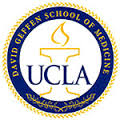
David Geffen School of Medicine, UCLA In 2002 Mr. David Geffen announced a $200 million...
Click here to add this to my saved trials
Midwest Children's Cancer Center The Medical College of Wisconsin Cancer Center is dedicated to providing...
Click here to add this to my saved trials
2450 Riverside Ave
Minneapolis, Minnesota 55454
Minneapolis, Minnesota 55454
(612) 273-3000
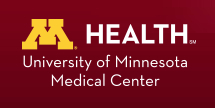
University of Minnesota Medical Center, Fairview Improving patients' lives drives the innovation that makes University...
Click here to add this to my saved trials
One Robert Wood Johnson Place
New Brunswick, New Jersey 08901
New Brunswick, New Jersey 08901
(732) 828-3000

UMDNJ-Robert Wood Johnson University Hospital Robert Wood Johnson University Hospital is a 965-bed hospital with...
Click here to add this to my saved trials
1430 Tulane Ave Suite SL32
New Orleans, Louisiana 70112
New Orleans, Louisiana 70112
(504) 588-5912

Tulane University Health Sciences Center One of the nation's most recognized centers for medical education,...
Click here to add this to my saved trials
New York University Langone Medical Center NYU NYU Langone Medical Center, a world-class, patient-centered, integrated,...
Click here to add this to my saved trials
Newark Beth Israel Medical Center Newark Beth Israel Medical Center, a regional care, teaching hospital...
Click here to add this to my saved trials
Click here to add this to my saved trials
725 Welch Rd
Palo Alto, California 94304
Palo Alto, California 94304
(650) 497-8000
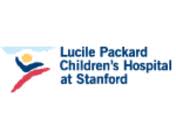
Lucile Packard Children's Hospital Stanford University Stanford Children's Health is the only network in the...
Click here to add this to my saved trials
Click here to add this to my saved trials
Seattle Children's Hospital Seattle Children’s Hospital specializes in meeting the unique physical, emotional and developmental...
Click here to add this to my saved trials
Click here to add this to my saved trials
3001 W Dr Martin Luther King Jr Blvd
Tampa, Florida 33607
Tampa, Florida 33607
(813) 554-8500

Saint Joseph Children's Hospital of Tampa Parents have the confidence of knowing that the specialized...
Click here to add this to my saved trials
111 Michigan Ave NW
Washington, District of Columbia
Washington, District of Columbia
(202) 476-5000

Childrens National Medical Center As the nation’s children’s hospital, the mission of Children’s National Medical...
Click here to add this to my saved trials





















